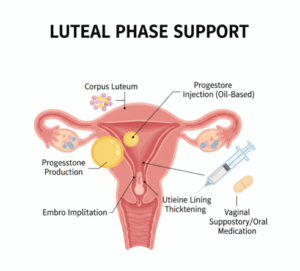Overview
Colon cancer, also called colorectal cancer when combined with rectal cancer, is one of the most common cancers worldwide. It develops in the colon (large intestine), typically starting as small, noncancerous growths called polyps. Over time, some polyps can turn into cancer if left untreated.
This disease is a leading cause of cancer-related deaths globally, but the good news is that it is highly preventable and treatable when detected early. Routine screening such as colonoscopy can identify and remove precancerous polyps before they progress. South Korea has established itself as a world leader in colon cancer prevention, early detection, and advanced treatment, offering international patients excellent outcomes.
What is Colon Cancer?
Colon cancer occurs when abnormal cells in the lining of the colon grow uncontrollably, forming malignant tumors.
Types of colon cancer include:
- Adenocarcinomas: The most common type, arising from glandular cells in the colon lining.
- Carcinoid tumors: Slow-growing tumors that develop in hormone-producing cells.
- Gastrointestinal stromal tumors (GISTs): Rare, originating from connective tissue.
- Lymphomas & sarcomas: Very rare, arising from immune or muscle cells.
Most colon cancers begin as adenomatous polyps, which can be detected and removed during screening procedures.
Symptoms
Colon cancer often develops silently, especially in its early stages. Symptoms usually appear when the disease progresses.
Common symptoms include:
- Persistent changes in bowel habits (diarrhea, constipation, or narrow stools)
- Blood in stool (bright red or dark)
- Unexplained weight loss
- Abdominal pain, cramping, or bloating
- Feeling that the bowel does not empty completely
- Fatigue or weakness (due to anemia)
Advanced symptoms may include:
- Severe abdominal distension
- Vomiting
- Intestinal obstruction
Causes
Colon cancer develops when genetic mutations cause normal colon cells to grow uncontrollably. Over time, these cancerous cells form tumors and may spread (metastasize).
Common causes include:
- Genetic mutations: Inherited or acquired mutations in tumor suppressor or DNA repair genes.
- Polyps: Adenomatous polyps are precancerous and can evolve into cancer.
- Chronic inflammation: Conditions like Crohn’s disease or ulcerative colitis.
- Lifestyle factors: Poor diet, physical inactivity, smoking, and alcohol consumption.
Risk Factors
Several factors increase the risk of developing colon cancer:
- Age: Most common in people over 50, though rates are rising among younger adults.
- Family history: Having close relatives with colon or rectal cancer.
- Genetic syndromes: Lynch syndrome (HNPCC) and familial adenomatous polyposis (FAP).
- Diet: High in red or processed meats, low in fiber, fruits, and vegetables.
- Lifestyle: Sedentary lifestyle, obesity, smoking, and heavy alcohol use.
- Medical conditions: Type 2 diabetes, inflammatory bowel disease.
- History of polyps or colon cancer: Increases recurrence risk.
Complications
Colon cancer, especially in advanced stages, can lead to several complications:
- Bowel obstruction: Tumors block the passage of stool.
- Perforation: Tumors weaken the colon wall, leading to leakage into the abdominal cavity.
- Metastasis: Spread to the liver, lungs, bones, or brain.
- Severe bleeding: Chronic blood loss leading to anemia.
- Recurrence: Even after treatment, colon cancer can return.
Prevention
Many cases of colon cancer can be prevented through healthy lifestyle choices and routine screening.
Prevention strategies include:
- Regular screening: Colonoscopy, stool tests, and CT colonography starting at age 45 (or earlier with family history).
- Polyp removal: Prevents progression to cancer.
- Diet: High in fiber, fruits, vegetables, and whole grains; low in processed meats.
- Exercise: At least 30 minutes of physical activity most days.
- Maintain healthy weight: Reduces risk significantly.
- Avoid smoking & limit alcohol.
- Aspirin (low dose): Sometimes prescribed for high-risk patients (under doctor’s guidance).
Treatment Options in Korea
South Korea is globally recognized for its advanced colon cancer treatment. Hospitals use cutting-edge technology, skilled specialists, and multidisciplinary care, making Korea one of the top destinations for international cancer patients.
1. Diagnosis & Staging
- Colonoscopy: Gold standard for detecting and removing polyps.
- CT/MRI scans: To assess tumor size and spread.
- Blood tests (CEA levels): To monitor cancer progression.
- Genetic testing: Identifies inherited mutations.
2. Surgery
- Polypectomy & local excision: Early-stage cancer or precancerous polyps removed during colonoscopy.
- Colectomy (colon resection): Removal of the cancerous portion of the colon, often performed with minimally invasive laparoscopic or robotic surgery in Korean hospitals.
- Lymph node removal: Helps determine cancer stage.
3. Chemotherapy
- Often used after surgery to kill remaining cancer cells.
- Common drugs: 5-FU, capecitabine, oxaliplatin.
- Targeted chemotherapy available for advanced stages.
4. Radiation Therapy
- More common for rectal cancer than colon cancer.
- Used before surgery (neoadjuvant) or after (adjuvant) to shrink tumors and prevent recurrence.
5. Targeted Therapy
- Drugs such as bevacizumab and cetuximab target specific cancer cell proteins.
- Available in Korean hospitals with personalized treatment plans.
6. Immunotherapy
- Checkpoint inhibitors (e.g., pembrolizumab) used for advanced cancers with certain genetic mutations (MSI-H tumors).
- Korea is involved in clinical trials expanding immunotherapy use.
7. Supportive & Rehabilitation Care
- Nutritional counseling and physical therapy.
- Stoma care education for patients undergoing colostomy.
- Psychological support for patients and families.
Why Korea is a top choice:
- Leading hospitals: Asan Medical Center, Samsung Medical Center, Seoul National University Hospital.
- Advanced robotic surgery and minimally invasive techniques.
- High survival rates with affordable costs compared to Western countries.
- Comprehensive international patient services with English-speaking coordinators.
Conclusion
Colon cancer is one of the most preventable and treatable cancers when caught early. Awareness of risk factors, adopting a healthy lifestyle, and undergoing regular screenings are the most effective steps in reducing risk.
South Korea stands as a global leader in colon cancer treatment, offering world-class facilities, skilled surgeons, and innovative therapies. For patients seeking top-quality care, Korea provides a combination of medical excellence, affordability, and patient-centered support.













